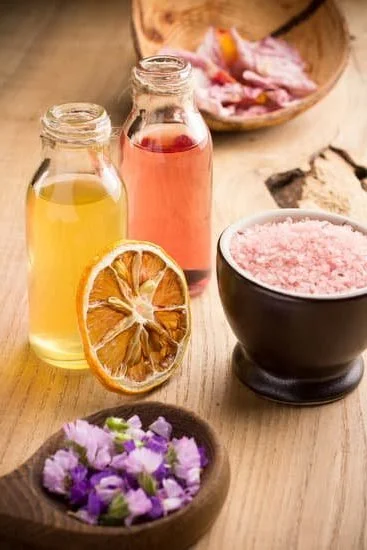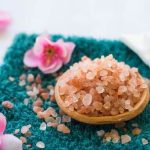Are you struggling with anxiety and looking for a natural alternative to medication? Aromatherapy may be the solution you’ve been searching for. Aromatherapy is the use of essential oils to promote physical and psychological well-being, and it has been found to be effective in treating anxiety.
Anxiety is a common mental health condition that can cause overwhelming feelings of worry, fear, and uneasiness. It can be caused by a variety of factors including stress, trauma, or genetics, and can manifest in symptoms such as rapid breathing, restlessness, and difficulty concentrating. While there are various treatment options available for anxiety, many people are turning to aromatherapy as a natural remedy.
The science behind aromatherapy lies in the way that essential oils interact with the brain and nervous system. When inhaled or applied to the skin, these potent plant extracts can have a direct impact on mood and emotions. By understanding how aromatherapy works on a physiological level, we can better grasp its potential as a holistic treatment for anxiety.
Understanding Anxiety
Anxiety is a common mental health condition that affects millions of people worldwide. It can be caused by a variety of factors, including genetics, brain chemistry, personality, and life events. Common symptoms of anxiety include excessive worry, restlessness, difficulty concentrating, irritability, muscle tension, and sleep disturbances. It’s important to note that anxiety can manifest in different ways for different individuals, and its impact on daily functioning can vary from mild to severe.
While traditional treatments for anxiety often involve therapy and medication, many people are turning to alternative therapies such as aromatherapy to manage their symptoms. Aromatherapy involves using essential oils derived from plants to promote physical and mental well-being. The use of aromatherapy for anxiety relief has gained popularity in recent years due to its natural approach and potential effectiveness in calming the mind and reducing stress.
Several studies have suggested that certain essential oils used in aromatherapy have anxiolytic properties, meaning they may help reduce anxiety levels. For example, lavender oil has been found to have sedative effects when inhaled or applied topically, making it a popular choice for promoting relaxation and reducing anxiety symptoms. Other essential oils such as chamomile, bergamot, and ylang-ylang have also shown promise in reducing anxiety levels when used in aromatherapy.
| Essential Oil | Anxiety-Reducing Properties |
|---|---|
| Lavender | Sedative effects; promotes relaxation |
| Chamomile | Calming effects; reduces nervousness |
| Bergamot | Mood-lifting effects; reduces stress |
| Ylang-Ylang | Reduces heart rate; promotes calming sensations |
When used properly, aromatherapy can be a safe and effective complementary treatment for managing anxiety. However, it’s essential to use high-quality essential oils and follow proper dilution guidelines to prevent adverse reactions or sensitivities. Additionally, it’s important to consult with a qualified healthcare professional before using aromatherapy as part of an overall treatment plan for anxiety.
How Aromatherapy Works
Aromatherapy works by harnessing the power of scent to promote physical and mental well-being. When essential oils are inhaled, the scent molecules travel to the brain and impact the limbic system, which is responsible for emotions, behaviors, motivation, and sense of smell. This is why certain scents can trigger specific emotional responses. For example, lavender is known for its calming properties, while citrus scents are often associated with feelings of energy and positivity.
Research has shown that aromatherapy can have a direct effect on the body’s autonomic nervous system, which regulates involuntary bodily functions such as heart rate, blood pressure, digestion, and stress response. By inhaling certain essential oils, individuals can stimulate the parasympathetic nervous system (“rest and digest” mode) and reduce activity in the sympathetic nervous system (“fight or flight” mode), leading to a more relaxed state.
Additionally, aromatherapy has been found to influence the production of neurotransmitters in the brain such as serotonin and dopamine. These neurotransmitters play a key role in regulating mood, anxiety levels, and overall mental health. Certain essential oils have been shown to increase serotonin levels (e.g. bergamot) or decrease cortisol levels (e.g. frankincense), thereby promoting a sense of calm and well-being.
| Essential Oil | Benefits |
|---|---|
| Lavender | Calming properties that help reduce anxiety and improve sleep quality |
| Bergamot | Can elevate mood and alleviate stress by increasing serotonin levels |
| Frankincense | Known to lower cortisol levels and promote deep breathing for relaxation |
Best Essential Oils for Anxiety Relief
When it comes to using aromatherapy for managing anxiety, choosing the right essential oils is crucial. Here are some of the best essential oils known for their anxiety-relieving properties:
- Lavender: Known for its calming and relaxing effects, lavender essential oil can help reduce stress and promote a sense of peace.
- Chamomile: This gentle yet powerful essential oil has been used for centuries to promote relaxation and ease feelings of nervousness.
- Bergamot: With its citrusy and uplifting aroma, bergamot essential oil can help alleviate symptoms of anxiety and improve mood.
- Ylang Ylang: This exotic floral oil is often used to ease tension, promote relaxation, and uplift the mood.
- Frankincense: Known for its grounding and centering properties, frankincense essential oil can help calm the mind and reduce feelings of anxiety.
These essential oils can be used individually or blended together to create a customized aromatherapy blend that addresses specific anxiety symptoms. It’s important to note that everyone reacts differently to different aromas, so it may require some experimentation to find the best combination that works for you.
In addition to these commonly used essential oils, other options such as rose, vetiver, and patchouli have also shown promise in helping individuals manage their anxiety symptoms through aromatherapy. It’s always best to consult with a qualified aromatherapist or healthcare professional before starting any new treatment regimen involving essential oils.
Different Aromatherapy Techniques for Managing Anxiety
Aromatherapy is an ancient practice that has been used for centuries to promote relaxation, reduce stress, and improve overall well-being. When it comes to managing anxiety, there are several different aromatherapy techniques that can be utilized to alleviate symptoms and promote a sense of calm and peace.
One popular aromatherapy technique for managing anxiety is inhalation. This method involves breathing in the scent of essential oils, which can have a direct impact on the brain’s limbic system – the area responsible for emotions and memories. Inhalation can be achieved through methods such as diffusing essential oils in a room, using a personal essential oil inhaler, or simply inhaling directly from the bottle.
Another effective aromatherapy technique for managing anxiety is topical application. When applied to the skin, essential oils can be absorbed into the bloodstream and provide therapeutic benefits. Aromatherapy massage is a common way to utilize topical application for anxiety relief, as well as applying diluted essential oils to pulse points or using them in a relaxing bath.
In addition to inhalation and topical application, aromatherapy can also be utilized through oral ingestion under the guidance of a qualified healthcare professional. While this method requires caution and should only be done with oils specifically designated as safe for internal use, it can be an effective way to manage anxiety from within.
However, it’s important to note that not all essential oils are safe for oral ingestion, so it’s crucial to seek expert guidance before attempting this technique.
Tips for Using Aromatherapy at Home
Creating the Right Environment
When using aromatherapy at home to manage anxiety, it’s important to create a calming environment. Choose a quiet and comfortable space where you can relax without distractions. Consider dimming the lights and playing soothing music to enhance the overall experience. You can also use a diffuser to disperse the essential oil fragrance throughout the room.
Choosing the Right Essential Oils
Not all essential oils are created equal when it comes to managing anxiety. Some of the best essential oils for anxiety relief include lavender, chamomile, bergamot, and ylang-ylang. These oils have been shown to have calming effects on the mind and body. It’s important to choose high-quality essential oils from reputable sources to ensure their effectiveness.
Application Methods
There are various ways to use aromatherapy at home to alleviate anxiety. Inhaling the scent directly from the bottle or using a diffuser is one common method. Another way is by diluting the essential oil in a carrier oil, such as coconut or jojoba oil, and applying it to pulse points like the wrists and temples. You can also add a few drops of essential oil to your bath water for a relaxing soak.
Aromatherapy and Mental Health
Aromatherapy has been used for centuries as a natural way to promote relaxation and relieve stress. In recent years, there has been a growing interest in the use of aromatherapy to treat anxiety and other mental health issues. Research has shown that certain essential oils have the ability to positively impact mood and emotions, making them a valuable tool in managing anxiety.
Several studies have demonstrated the potential benefits of aromatherapy for anxiety relief. For example, a study published in the Journal of Alternative and Complementary Medicine found that inhaling lavender essential oil reduced anxiety levels in patients awaiting dental treatment. Another study published in the Journal of Clinical Psychiatry reported that participants who received aromatherapy massage with rosemary and lavender essential oils experienced a significant decrease in anxiety levels compared to the control group.
The research on aromatherapy and mental health is still ongoing, but the existing evidence suggests that it can be an effective complementary therapy for managing anxiety. Whether it’s through inhalation, massage, or diffusion, the use of essential oils in aromatherapy shows promise in promoting relaxation and reducing feelings of anxiousness. As more studies are conducted, we may gain a better understanding of how aromatherapy works on a neurological level to provide relief from anxiety symptoms.
Personal Success Stories
Aromatherapy has been a popular alternative treatment for anxiety, with many people swearing by its effectiveness in managing symptoms of stress and worry. Personal success stories abound, with individuals reporting positive experiences with using essential oils to help alleviate their anxiety. These anecdotal accounts provide insight into the potential benefits of aromatherapy as a natural approach to mental wellness.
Reduced Stress Levels
Many individuals have reported feeling a significant reduction in their stress levels after incorporating aromatherapy into their daily routines. The calming and soothing scents of essential oils have helped create a sense of relaxation and tranquility, providing relief from the constant feelings of anxiety that can often be overwhelming.
Improved Sleep Quality
Sleep disturbances are common among those suffering from anxiety, but aromatherapy has been credited with helping improve sleep quality for many individuals. By diffusing or applying certain essential oils before bedtime, people have found that they are able to calm their minds and achieve a more restful night’s sleep, ultimately leading to reduced anxiety levels during the day.
Enhanced Emotional Well-Being
In addition to reducing stress and improving sleep, personal success stories often mention an overall enhancement in emotional well-being as a result of using aromatherapy for anxiety relief. Many individuals have reported feeling more balanced, grounded, and emotionally stable after incorporating essential oils into their self-care routine.
These personal success stories serve as powerful testimonies to the potential benefits of using aromatherapy as a complementary approach to managing anxiety. While individual experiences may vary, the positive outcomes shared by those who have tried this natural therapy highlight its potential as a valuable tool in promoting mental wellness.
Conclusion
In conclusion, aromatherapy has shown to be a valuable tool in the management of anxiety and overall mental wellness. The use of essential oils and various aromatherapy techniques can provide relief from symptoms of anxiety, promoting relaxation and emotional balance. The science behind aromatherapy supports its effectiveness, making it a popular complementary treatment for those seeking natural remedies for their anxiety.
Research has revealed that certain essential oils have proven to have anxiolytic effects, such as lavender, chamomile, and jasmine. These oils can be used in a variety of methods such as diffusing, inhaling, or applying topically to experience their calming benefits. Furthermore, personal success stories highlight the positive impact of aromatherapy on individuals’ mental health, further supporting its use as a holistic approach to anxiety management.
As more people recognize the potential benefits of aromatherapy to treat anxiety, it is important for individuals to understand the proper techniques and essential oil options available to them. By incorporating aromatherapy into their daily routines at home or seeking professional guidance when necessary, individuals can harness the therapeutic properties of essential oils for better mental wellness. Aromatherapy serves as an accessible and natural approach to managing anxiety and promoting overall well-being.
Frequently Asked Questions
What Is the Best Aromatherapy for Anxiety?
The best aromatherapy for anxiety typically includes essential oils like lavender, chamomile, and bergamot. These oils have calming properties that can help reduce feelings of stress and promote relaxation.
What Is the 3 3 3 Rule for Anxiety?
The 3 3 3 rule for anxiety involves taking note of three things you see, hear, and feel during an anxiety attack. This practice helps to ground yourself in the present moment and shift your focus away from the source of anxiety.
What Is the Best Treatment for Severe Anxiety?
The best treatment for severe anxiety often involves a combination of therapy and medication. Cognitive Behavioral Therapy (CBT) is commonly used to help individuals identify and change negative thought patterns associated with anxiety. Medications such as SSRIs or SNRIs may also be prescribed by a healthcare professional to help manage symptoms.

Are you looking for a natural way to improve your health and wellbeing?
If so, aromatherapy may be the answer for you.





